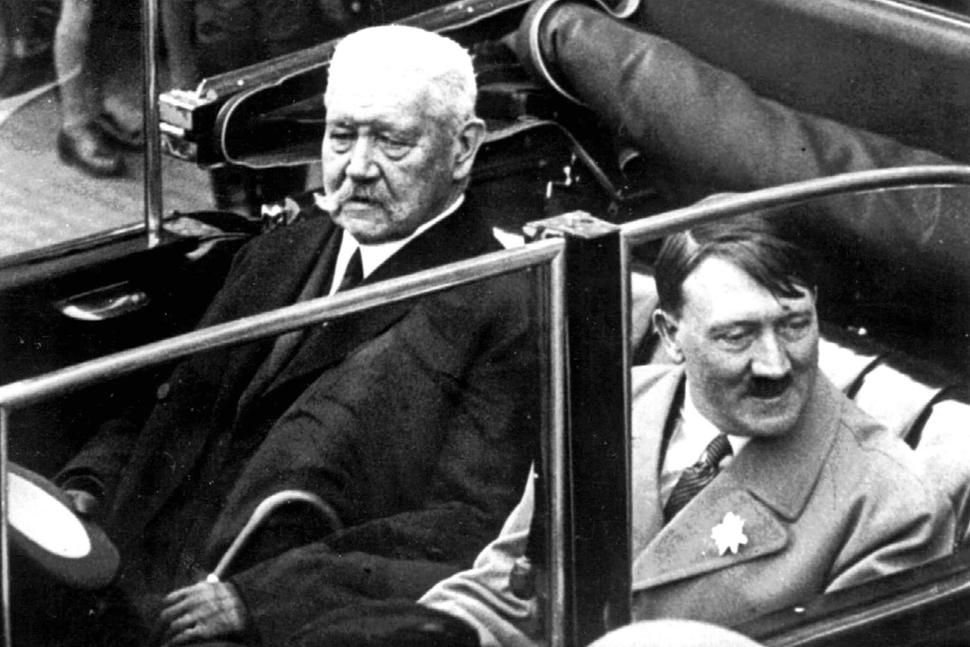2.8. 1934 Hitler appointed German leader
Categories: Second World War , Calendar

Hitler used the death of President Hindenburg to combine the functions of President and Chancellor and to take personal command of the armed forces. Abolishing the title of Reich President, he began to refer to himself as "Führer and Reich Chancellor".
A year after Hitler was inaugurated as Chancellor, the upper house of the Reichstag (Reichsrat) was abolished. This happened on 30 January 1934. the federal system was completely abolished by removing the administrative bodies from the power of the individual states. The last important event in the process of constitutional change was the death of President Hindenburg on 2 August 1934.
"Paul von Hindenburg, Reich President, dies on August 2, 1934, at the age of eighty-six. Until the last moment he has no idea that he has put power in the German Reich in the wrong hands," Rüdiger Barth and Hauke Friederichs report in Before Hitler Came.
Hitler used the death of the president to combine the functions of president and chancellor and to take personal command of the armed forces. With the abolition of the title of Reich President, Hitler began to refer to himself as "Führer and Reich Chancellor". Army and police officers now had to take an oath to Hitler, which was subsequently for many moral obstacle to resisting the regime," writes Mary Fulbrook in A History of Modern Germany.
The army was able to ignore and bridge its doubts about Hitler for many reasons. First, Hitler never made any secret of his intentions for an aggressive foreign policy and a change in the much-hated Treaties of Versailles. Hitler's whipping up of hatred against these treaties and his public shaming of Jews and Bolsheviks, whom he nicknamed"November criminals" because they had brought disgrace on Germany, were all constant themes even before he came to power.
After he became Chancellor, he set these plans in motion. As early as February 8, 1933, he informed the ministers that unemployment would be reduced by renewed arms production. In July 1933 tank production, euphemistically called the "agricultural tractor programme", was launched. In 1934, production of explosives, ships and aircraft began - all in violation of the Versailles Accords, but enthusiastically accepted by the military.
In addition, Hitler resolved a potential source of dissent in relation to the traditional armed forces. Under Ernst Röhm's leadership, the SA became a major rebel organisation, promoting unwelcome views on the needs of the 'second revolution', and developed into a rival not only to the elite SS but also to the conventional army. Hitler thus decided that the support of the SS and the army were more important to him than the SA, and provoked the so-called "Night of the Long Knives" on 30 June 1934, during which the leaders of the SA were murdered, along with other individuals with whom Hitler disagreed.
Sources: Mary Fulbrook, History of Modern Germany, Rüdiger Barth and Hauke Friederichs, Before Hitler Came, www.usnews.com
The article is included in categories: